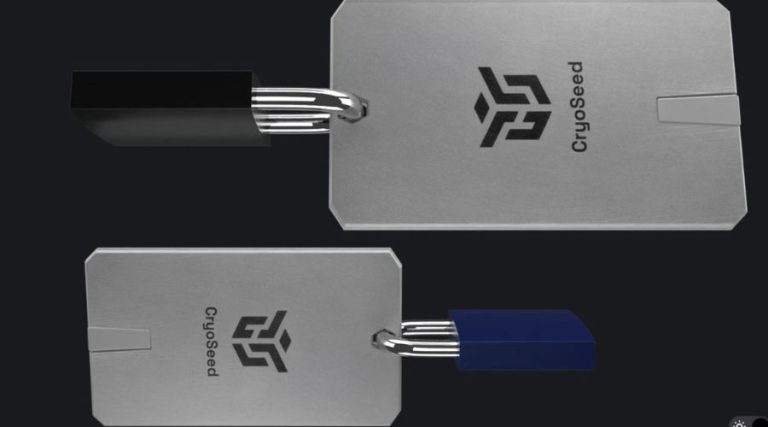
Privacy in DeFi: Balancing Transparency with User Security
Decentralized Finance, or DeFi, is a rapidly growing industry that aims to revolutionize the traditional financial sector by providing users with decentralized and permissionless access to financial services. With the use of blockchain technology, DeFi platforms enable users to transact with digital assets without the need for intermediaries like banks. However, with the rise of decentralized finance comes concerns over privacy and security. In this article, we will discuss the importance of privacy in decentralized finance and how to balance it with user security.
What is DeFi, and Why is it Important?
Decentralized Finance refers to a financial system that operates on a decentralized blockchain network. The core principle of decentralized finance is to provide a permissionless and transparent financial system where users can transact with digital assets without the need for intermediaries. Decentralized finance is important because it enables financial inclusion, reduces barriers to entry, and provides users with more control over their financial assets.
The Importance of Privacy in DeFi
While transparency is a core principle of decentralized finance, privacy is also important. Privacy is crucial for preserving the anonymity of users, protecting their financial information, and ensuring that their financial activities are not tracked or monitored without their consent. In a decentralized system, privacy can be achieved through the use of cryptographic protocols like zero-knowledge proofs, ring signatures, and stealth addresses.
Balancing Transparency with User Security
Balancing transparency with user security is crucial for the success of decentralized finance. On the one hand, transparency is essential for building trust in the system, enabling users to verify that their funds are safe and that the system is functioning as intended. On the other hand, user security must be prioritized to ensure that users’ financial assets are protected from hacks and theft.
To achieve a balance between transparency and user security, decentralized finance platforms should implement privacy-preserving technologies and ensure that users have control over their personal information. This can be done through the implementation of robust security measures like multi-factor authentication, biometric authentication, and hardware wallets. Additionally, decentralized finance platforms should be transparent about their security practices and undergo regular security audits to ensure that they are secure and compliant with industry standards.
Risks Associated with DeFi
Despite the benefits of decentralized finance, there are also risks associated with it. The decentralized nature of decentralized finance means that there is no central authority to regulate the system, making it vulnerable to hacks, scams, and other fraudulent activities. Additionally, the lack of regulation in the DeFi space means that users may not have legal recourse in case of fraud or theft.
To mitigate these risks, users should exercise caution when using decentralized finance platforms, perform due diligence before investing, and only use platforms that have undergone security audits and are transparent about their security practices.
Privacy-Preserving Technologies in DeFi
There are several privacy-preserving technologies that can be used in decentralized finance to protect users’ privacy. One of these is zero-knowledge proofs, which enable users to prove that they possess certain information without revealing that information. Another technology is ring signatures, which enable users to sign a message anonymously as a member of a group. Stealth addresses are another privacy-preserving technology that can be used in DeFi. These addresses enable users to receive funds without revealing their public address.
User Control in DeFi
User control is also important in decentralized finance. Users should have control over their personal information, including their financial data. DeFi platforms should ensure that users can control who has access to their information and how that information is used. Additionally, users should have the ability to revoke access to their information at any time.
DeFi Regulation
The lack of regulation in the decentralized finance space is a concern for many users. While the lack of regulation enables innovation and experimentation, it also creates risks for users. DeFi platforms should work with regulators to establish clear guidelines for the industry, including security standards and legal requirements. This will help to build trust in the system and ensure that users are protected.
DeFi and Financial Inclusion
One of the main benefits of decentralized finance is its potential to promote financial inclusion. Decentralized finance can provide access to financial services for individuals who may not have access to traditional banking services. For example, individuals who do not have a bank account or who do not meet the minimum balance requirements for traditional banking may be able to use DeFi platforms to access financial services.
DeFi and Transparency
Transparency is a core principle of decentralized finance. DeFi platforms should ensure that users can verify that their funds are safe and that the system is functioning as intended. This can be achieved through the use of auditors and transparent reporting of financial data. Additionally, DeFi platforms should be transparent about their governance structures and decision-making processes.
Conclusion
Privacy is an important consideration in the DeFi space. Balancing privacy with transparency and user security is crucial for the success of DeFi. DeFi platforms should implement privacy-preserving technologies and ensure that users have control over their personal information. Additionally, DeFi platforms should work with regulators to establish clear guidelines for the industry. With proper caution and due diligence, users can enjoy the benefits of DeFi while mitigating the associated risks.
FAQs
- Is it safe to use DeFi protocols?
Yes, decentralized finance protocols can be safe to use, but it is important to take precautions to protect your assets and maintain your privacy. This includes using non-custodial wallets, avoiding public Wi-Fi networks, and using privacy-focused DeFi protocols. - What are the benefits of using privacy-focused decentralized finance protocols?
Privacy-focused DeFi protocols allow users to transact anonymously, protecting their privacy and security. This can be especially important for users who wish to keep their financial transactions private. - What are the risks of using DeFi protocols?
DeFi protocols are often targeted by hackers and bad actors seeking to steal funds or exploit vulnerabilities in the protocol. Additionally, transactions on decentralized finance protocols are often visible to anyone with an internet connection, which can raise concerns about user privacy. - Can DeFi protocols be regulated?
DeFi protocols are decentralized and open-source, which makes them difficult to regulate. However, some governments are exploring ways to regulate decentralized finance by introducing laws and regulations that apply to DeFi users and developers. - What is the future of DeFi?
The future of decentralized finance is uncertain, but it is likely that this new financial ecosystem will continue to grow and evolve as developers and users explore new ways to use blockchain technology to create innovative financial products and services.


